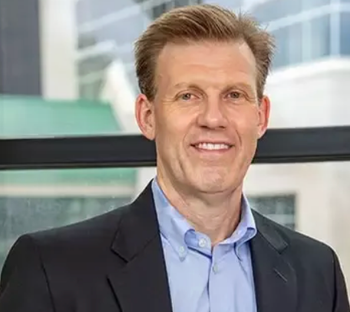
Why many health leaders remain hesitant about AI
Most say they are optimistic about its potential, but they don’t have a clear clinical strategy for AI. Dan D’Orazio of Sage Growth Partners talks about a survey of executives on AI.
Given the constant focus and hype surrounding AI in healthcare, it’s probably not surprising that a new survey of healthcare executives say they’re optimistic about its potential.
But the survey of healthcare leaders also indicates a great deal of hesitation about using AI, particularly for clinical uses. Sage Growth Partners, a healthcare advisory firm, surveyed 101 executives from academic medical centers, independent hospitals, and integrated delivery networks.
The vast majority of executives surveyed (83%) say they think AI can improve clinical decision making.
Dan D’Orazio, CEO of Sage Growth Partners tells Chief Healthcare Executive® that healthcare leaders think AI has the potential to help make better choices for patients. But he says the survey also shows executives are being very cautious about adopting AI for clinical decision making.
Only one in 10 executives (10%) say their organizations are aggressively pursuing AI, while only 13% say they have a clear strategy for integrating AI into clinical workflows. Similarly, 12% of respondents say AI’s algorithms are truly reliable.
“I think we should all be optimistic but cautious, on many levels,” D’Orazio tells Chief Healthcare Executive®. And he says much of that caution is warranted.
“We're at the very, very front end of what some people have called … the fourth industrial revolution,” he adds. “And it's in all of our hands.”
(See part of our conversation in this video. The story continues below.)
Machines working for humans
In a noteworthy finding from the survey, healthcare leaders ranked the appropriate use of AI as their third greatest challenge. They cited lowering the cost of care as their top challenge, followed by cybersecurity.
Health systems are finding some promising uses for AI. More hospitals are deploying AI-powered ambient documentation tools that can record patient conversations and provide summaries for clinicians, reducing some administrative burdens for doctors.
Ambient tools are being embraced by doctors, D’Orazio says.
“On the promising side, what we've seen with ambient is finally, the human is not working for the machine,” he says. “The machine is now working for the human.”
And that’s a significant development, especially since so many clinicians and healthcare leaders say that electronic medical records
With ambient tools, “Now it's like the human gets benefit from the machine. Where have we seen that in healthcare? It's almost like the first time.”
While some executives are still formulating strategies, most say their organizations are spending more money on AI solutions.
Two-thirds (67%) say they are investing in AI solutions aimed at improving patient care, while 66% said they are spending on AI tools that are designed to streamline administrative operations, according to the poll.
Many executives are uneasy about the reliability of AI algorithms for clinical uses, D’Orazio notes. And he says that it’s not realistic to expect AI models to make no mistakes, since there are plenty of medical errors in health care coming from the independent judgment of human beings.
“Humans make a lot of mistakes, yes, but maybe we feel like we can control the scale of the mistake at a unique level. Because if AI can make things better, AI can also make things bad happen faster,” he says.
D’Orazio says he’s optimistic that doctors will use AI tools to stay up to date on rapid changes in medicine, making it much easier to access the latest research.
“If this allows the physicians to really operate with a different level of access, using their brain and their training to query the medical literature, well, I think that's really positive, because there's just no way they can keep up with it,” D’Orazio says.
‘Has to change the world’
There was enormous enthusiasm around AI a few years ago, but D’Orazio says some of that has been tempered by “democratization, because all of us use it.”
And many investments in generative AI haven’t yielded a return yet, adding to caution.
Still, D’Orazio says healthcare organizations are going to have to turn to AI, even with some AI projects falling short.
“There's also the reality that this is and has to change the world we work in,” he says.
Healthcare organizations continue to face shortages of workers. Plus, he points to the fact that the tax package approved by President Trump and Congress means
With the fallout of that legislation, D’Orazio says, “You better survive in a different way.”
Health systems and other providers are going to have to turn to AI to be more efficient with less federal aid for health care in the coming years, he suggests. “How can this not be central to that, right? I mean, it has to be,” he says.
D’Orazio expects a significant amount of challenges as health systems look to adopt AI into their organizations successfully.
“I think we're just in for a wild ride. I think we're gonna have ups and downs,” he says.
“I think there's a big difference between an individual user and an enterprise deployment if it doesn't marry to the workflow,” he adds. “That's where everyone dies in healthcare, right? Nothing works if it doesn't marry to the workflow, in the right context or understanding health care. And I'm hopeful. I'm cautious.”
Pointing again to the survey, many share that view. “I think the data reflects that appropriately,” he says.






















































































